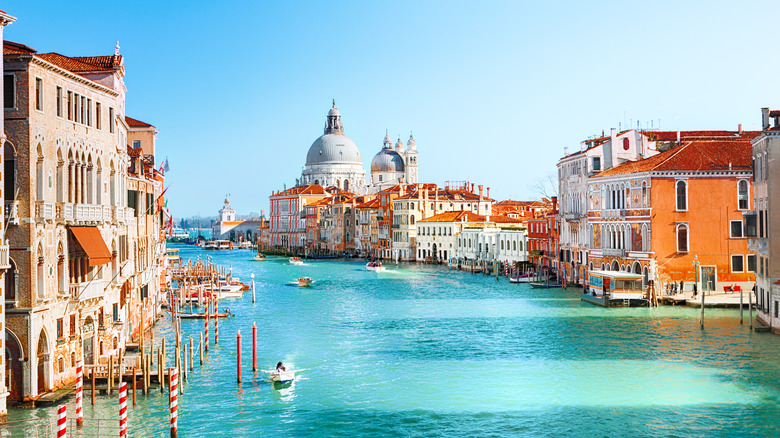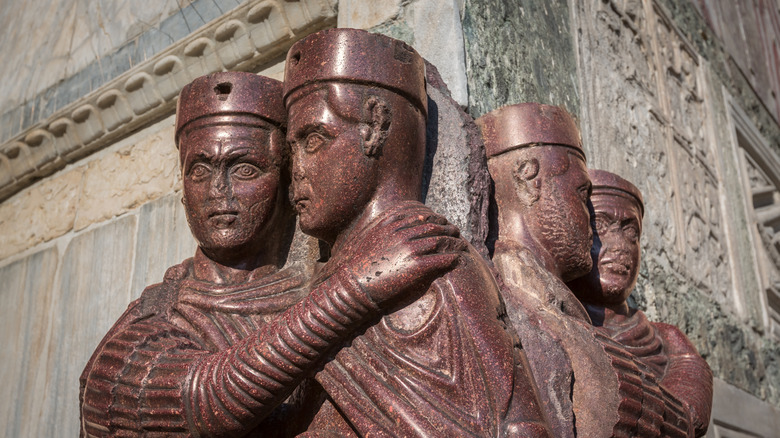The Real Reason Venice Was Built On Water
The waterways of Venice are some of the most well-known images of modern Italy, with small boats traversing the road-like network of canals. Unfortunately, rising water levels have damaged much of the historic city and threaten to completely engulf it in the future (via Forbes). With this in mind, the wisdom of its location may come across as questionable — why build a city on water in the first place? Ironically, the answer is because its location allowed the city to persist for centuries.
Life in Europe during and after the collapse of the Western Roman Empire was a constant battle for power and survival. While the city of Rome was no longer the empire's capital, its sacking by the Visigoths in A.D. 410 virtually destroyed the western realm's autonomy. The arguable exception is the Kingdom of Soissons — a west Roman rump state in what is now northern France that survived a few more decades, per The History Files. Still, Visigothic authority spanned from Italy to Spain and would last for over 300 years (via History.com). However, in A.D. 421, the Veneti — Celtic former Roman citizens — fled the mainland for a marsh in defiance of their would-be rulers.
Venice was built on top of logs
According to Infographics, the Veneti settled meager fishing grounds for two reasons: security from the land-based armies of their enemies and to be as close to Byzantine/Eastern Roman protection as possible. In order to make their new homeland a reality, years of intensive planning and construction were required to tame the sand and water. Large wooden stakes were driven into the ground to act as a foundation, and once waterlogged and petrified by the ocean, they were more than strong enough to support massive stone structures (via The Travel).
Venice grew from the ambitious architectural project of desperate refugees to one of Europe's strongest naval powers in just a few centuries. By 1204, the Veneti were strong enough to join other crusading states in the sack of Constantinople — the capital of their former Byzantine ally (via Britannica). Even as Venetian influence dwindled, their geography allowed them to remain independent until 1797, when they were conquered by Napoleon (via Delicious Italy). The city subsequently exchanged ownership between the French and the Austrians and finally became a unified Italian state in 1866.

